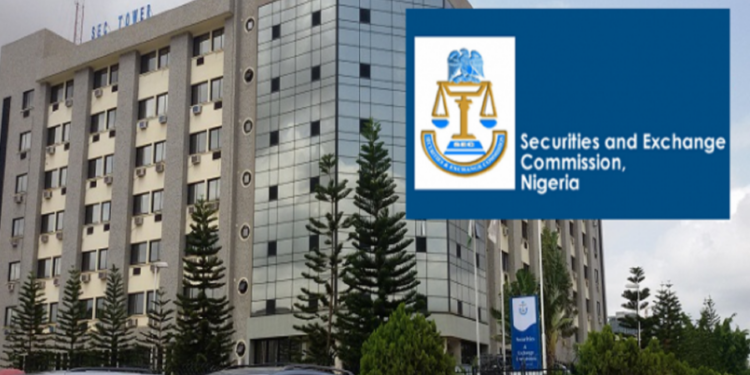
By Akinmola David
The Securities and Exchange Commission (SEC) has directed all capital market operators (CMOs) to declare their compliance status with the Investments and Securities Act (ISA) 2025 and ensure that all tradable instruments under their management are fully registered by January 2026.
The directive, delivered by SEC Director-General Dr. Emomotimi Agama through the Commissioner of Operations, Bola Ajomale, came at the 2025 Journalists’ Academy held yesterday in Lagos.
The event, themed “ISA 2025 and the Future of Nigeria’s Capital Market: Innovation, Protection and Growth,” underscored what the Commission described as a new era of regulatory clarity, transparency and discipline.
Agama said the updated Act is designed to reengineer the structure and dynamism of the Nigerian capital market, stressing that individuals and institutions dealing in securities must comply with registration requirements within the stipulated timeframe.
He emphasised that ISA 2025 is not a mere revision of the 2007 legislation but a forward-looking framework crafted to strengthen market integrity in an increasingly complex financial environment.
For the first time, he noted, the Act articulates the SEC’s mission in explicit terms protecting investors, upholding transparency, curbing unlawful practices, mitigating systemic risks and supporting capital formation.
The strengthened mandate, he said, eliminates long-standing interpretive gaps that once hindered enforcement and aligns the regulator’s activities more directly with national economic priorities.
A major feature of the new law is the expanded investigative authority conferred on the Commission, enabling it to probe not only regulated entities but also third parties where necessary to uncover market abuse, fraud, or sophisticated financial schemes.
Agama said the expanded scope closes critical loopholes that previously hampered investigations and ensures that the regulator is no longer constrained by outdated definitions or narrow supervisory limits.
He described ISA 2025 as the product of a collective national effort to modernise the capital market, driven by the rapid evolution of digital trading systems, the rise of fintech and virtual asset platforms, repeated exploitation of regulatory gaps by Ponzi operators, and the growing complexity of financing models.
Agama added that aligning Nigeria’s market framework with global standards particularly those of the International Organisation of Securities Commissions (IOSCO) and strengthening the capital market’s contribution to national development were central considerations in the reform process.






